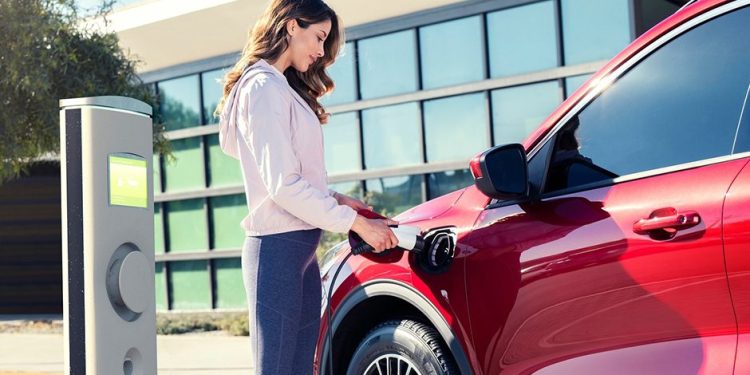Electric car ownership study underlines the genre’s biggest issue
Late last week, J.D. Power released its inaugural EV Experience Ownership Study, which dived headfirst into the topic of electric car owner satisfaction.
The survey polled 9632 electric car (BEV and PHEV) owners from across the US, quizzing them on a range of topics from whether they’re keen to buy another EV, to if they’re satisfied with the accuracy of their car’s claimed range, to quality issues.
What the study underlined most was ongoing questions of range and charging, with the latter playing a hefty part in the overall satisfaction rankings, according to J.D. Power. Range was found to be the most common deciding factor for EV buyers, and public charging network was found to be a “key determinant of satisfaction”.
Tesla, perhaps unsurprisingly given the above, romped home in the overall stakes. The Model S and Model 3 claimed the top two spots, with 798 and 790 points each out of a possible 1000. In the ‘premium’ rankings Teslas also appeared in third and fourth via the Model Y (780) and Model X (758).
The best of the rest in premium was the Audi e-tron, miles behind on 686. And meanwhile in the ‘mainstream’ EV list, the Kia Niro EV (782) led the Chevrolet Bolt, Hyundai Kona EV, Nissan Leaf, and Volkswagen e-Golf.
According to J.D. Power, “satisfaction among owners of premium battery electric vehicles (BEVs) with availability of public charging is 235 points higher than among owners of mass market BEVs, largely due to Tesla owners’ higher level of satisfaction with the Tesla public charging network,” adding that “satisfaction with the availability of public charging is 305 points higher among Tesla owners than among owners of other brands.”
The study’s results fly somewhat in the face of claims that the lack of a complete public charging network is negated in ownership experience by the ability to charge at home or at work. There are over 16,000 Tesla Superchargers operating in the US, with that number climbing.
J.D. Power also noted in their study that early EV adopters were likely to remain EV owners into the future, with two thirds saying they would stay with the same brand.
“Brand loyalty can be fickle among EV owners. While early adopters of EVs say they’ll remain loyal to EVs in general, staying with the same brand is not a sure thing. Auto manufacturers will have to keep EV owners and shoppers interested in their products beyond just the cost equation,” said Brent Gruber, senior director of global automotive at J.D. Power.
“With automakers expected to flood the market with EV launches during the next three years, to capture a share of the market they need to offer vehicles that evoke excitement and meet owners’ broader needs.”





